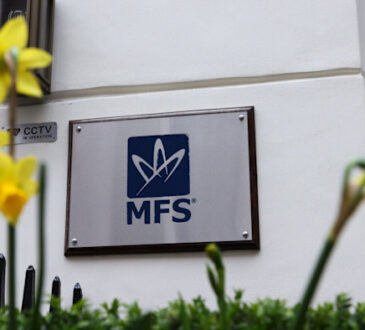Property’s ability to generate both income and share price gains has long given it a special place in retail investors’ hearts. As Mark Twain famously remarked: “Buy land, they’re not making it any more.” The residential and warehouse sectors — beds and sheds — have been particularly popular in recent years.
That enthusiasm is easy to understand. The rise of online shopping and the growing need for giant data centres — both fuelled by coronavirus lockdowns — meant record breaking demand for warehouse space and ultra-low vacancy rates. Those factors in turn propelled share valuations. Tritax Big Box, one of the UK’s largest industrial Real Estate Investment Trusts (Reits), counts Amazon and most of the UK’s major supermarkets and retailers among its customers.
But the asset class has endured painful times too. Brexit was a blow and warehouses, offices and retail have been hit by high interest rates and fears of recession. The last two have also felt the impact of the growth in home and hybrid working. The fog has only recently lifted from the outlook for sectors such as offices.
Consolidation has been one avenue for Reits to restore their financial stability. Tritax Big Box merged with UK Commercial Property last year while NewRiver merged with Capital & Regional, its rival in the troubled town centre shopping centre arena. Both created bigger, stronger entities. LondonMetric is buying out Urban Logistics. Meanwhile, the latent value in the sector has drawn in private equity. KKR, the US PE giant, is battling Primary Health Properties for the prize of GP surgeries specialist Assura. Warehouse Reit, battered by the poor macroeconomic backdrop and high interest rates, this week accepted a £470mn offer from Blackstone. More bids and consolidation cannot be ruled out as Reits try to scale up and build resilient diverse portfolios.
BUY: Mitie (MTO)
Acquisition of Marlowe is expected to accelerate Mitie’s pivot towards higher-growth, higher-margin markets, writes Valeria Martinez.
Mitie is a company in transition, but that shift is paying off so far. A year into its three-year plan to pivot from traditional facilities management to a tech-driven ‘facilities transformation’ model, the FTSE 250 outsourcer is showing solid progress.
Organic revenues rose 9 per cent last year, driven by new contract wins, project upselling and pricing gains. The company secured a record £7.5bn in contract awards, and its total order book jumped to £15.4bn. That is despite losing two public sector deals, which dragged its renewal rate down to 59 per cent.
Operating margins dipped slightly to 4.6 per cent, partly due to inflation, strategic investments and a wobble in its telecommunications arm, although that division is now back at break-even. Mitie still expects to hit its 5 per cent margin target by 2027, helped by cost savings and efforts to offset higher national insurance costs.
Cash flow was another bright spot. Free cash flow came in at £143mn, well ahead of guidance of at least £100mn and edging closer to its £150mn target. Net debt ticked up from £81mn at the end of 2024 to £199mn, but leverage remains comfortably within its target range.
Mitie has been active on the M&A front, and today announced it would swoop in for Aim-traded compliance specialist Marlowe in a £336mn deal. The move shores up its position in the compliance space, particularly within fire, water and air quality, where spending is only set to grow.
The shares dipped on news that the group is pausing its £125mn buyback to fund acquisitions, but they remain up nearly a fifth over the past year. With the shift towards higher-margin work progressing well and demand rising, the valuation of 11.2 times earnings still looks attractive.
HOLD: B&M (BME)
The retailer’s shares trade at nine times forecast earnings, writes Michael Fahy.
B&M European Value Retail’s outgoing chief executive, Alex Russo, told investors that its buying acumen meant that, despite the overall growth in inflation experienced across the wider market over the past five years, its customers were still basically paying the same price for their goods.
B&M’s top line has grown by about 40 per cent over that period, but the physical volume of goods it handles has gone up by the same amount.
The difficulty with this, of course, is that its own costs have been growing. Without contributions from new stores, like-for-like sales in the core B&M UK business fell by 3.1 per cent in the 52 weeks to March 29. Reported profit and earnings per share both fell by 13 per cent, mainly because of higher interest charges.
This reflects the fact that, although B&M has been a highly cash-generative business, its balance sheet has weakened. Chief financial officer Mike Schmidt said net debt of 1.2 times adjusted cash profit was “comfortably in the lower half” of the company’s target operating range of one to 1.5 times. But, when lease liabilities are included, this grows to 2.5 times, and it has plenty of other things it wants to spend money on, including more new stores and share buybacks (once the business is redomiciled to Jersey).
B&M’s share price has fallen by 44 per cent over the past 12 months, to nine times FactSet’s forecast earnings. Analysts think this is too cheap — the consensus target price is 40 per cent higher than the current level. Yet reported earnings momentum has basically been flat for four years and this remains a business in transition. As such, we think the current rating fairly reflects the risk.
SELL: Pennon (PNN)
The water company is increasing spending as regulatory pressure on the sector increases, writes Alex Hamer.
The headline figures in Pennon’s results for the year to March 31 — revenue up 15 per cent to £1.05bn and a pre-tax loss of £73mn — do not capture the full picture. The company, which owns South West Water, is shifting to a new regulatory period and has been hit by exceptional costs of £38mn.
This last figure includes £21mn relating to the outbreak of a parasite in the drinking water supplied to Brixham in Devon. Pennon management expects a return to profitability this year.
But finance costs are expected to keep climbing, even as interest rates come down. Net financing costs will go up by around £30mn in the current financial year, from £171mn in FY2025.
For investors, the biggest impact so far of an investment push has been the dividend being held at previous levels despite the higher share count. This has knocked the per-share total payout by 14 per cent for FY2025.
To go back to the basics, Pennon will remain at risk from incidents such as Brixham and has to juggle between the balance sheet and a potentially more interventionist regulator.



